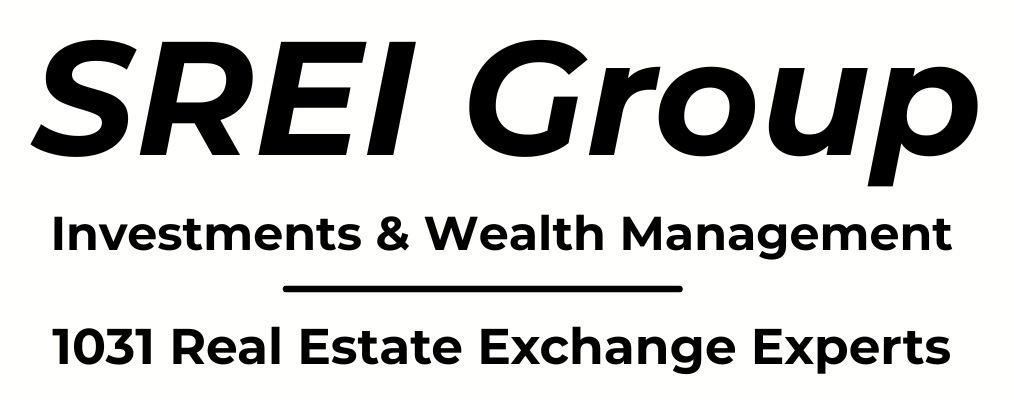For investors, the Federal tax code has, for over a century, offered an attractive exchange option to mitigate the tax burden, primarily used to defer taxes on capital gains related to real estate.
1031 Exchange
Real estate investors have long become accustomed to utilizing the IRC 1031 exchange code to defer a taxable event obligation that typically occurs with the sale of one asset, thereby delaying the obligation to a subsequent property.

Internal Revenue Service: “Whenever you sell a business or investment property and have a gain, you generally have to pay tax on the gain at the time of sale. IRC Section 1031 provides an exception and allows you to postpone paying tax on the gain if you reinvest the proceeds in similar property as part of a qualifying like-kind exchange.”
In the Beginning.
While the creation of the Delaware Statutory Trust code first occurred in 1988; lately, real estate investors have been exploring different options for investing. The Delaware Statutory Trust (DST) has become increasingly popular due to its expanded availability, variety, and unique benefits compared to owning a property outright. Data reveals the DSTs market had a great year in 2022 with $9 billion in fundraising, up nearly 27 percent compared to the $7.2 billion in fundraising from 2021(1).
Alternative Real Estate Investment
DSTs are an exciting alternative to traditional real estate ownership, whereby investors can pool their funds together to purchase a property and receive a proportional share of the income and tax benefits. The DST structure also offers unique advantages, such as limited liability protection and the ability to defer capital gains taxes through a 1031 exchange. DSTs allow investors to invest small amounts of money, typically starting at $100,000, in various properties. Often, the investment property is orders of magnitude beyond the investor’s single purchase capacity. An investor can also sleep well at night, knowing any recourse on borrowed money rests solely with the Sponsor.
Mitigate Capital Gains Taxes
One of the most significant advantages of using a DST for a 1031 exchange is that it allows investors to defer taxes on the sale of their relinquished property to the purchase of their replacement property. Requirements include identifying the replacement property within 45 calendar days and completing the purchase by midnight of the 180th calendar day. Stipulated in the IRC 1031 exchange code, the DST, as a fractional ownership, qualifies as a “like-kind” real estate investment property. Many investors planning to go from one real estate property to another will list a DST as their third identified property, creating a safety fallback if the first two properties fall out, or use a DST purchase to avoid residual “boot” in the 1031 exchange.
Other Benefits
The benefits extend beyond the tax-deferral characteristics. DSTs are initially identified and purchased by a Sponsor organization using its industry-level borrowing qualifications, often resulting in more favorable terms. Typically, with its professional management team, the Sponsor continues to oversee the property, affording the investor a more passive investment opportunity. Depending on the nature of the property, the tenant is often a more favorable (less) credit risk, which aids in the property’s ongoing financial strength.
Many investors of DSTs are transitioning out of active management but still need a reliable source of passive income. As many of the DST products available from Sponsors invest in income-producing properties, investors can receive regular distributions from the trust.
A Tool for Diversification
A unique benefit of a DST that’s not readily afforded to a real estate investor is increased flexibility in the type of property, i.e., multifamily, self-storage, single tenant NNN, etc. Consider how you might create a purchase portfolio across different market segments or regions, taking into account the country’s demographics and natural climate concerns. With fractional ownership, investors diversify their portfolios and potentially reduce their risk.
Selective Sponsors offer property cost segregation on the Fund’s properties. This analysis can prove essential and beneficial for accelerated depreciation for investors seeking to utilize a DST as a cash investment. DST shares are available for purchase with cash unrelated to 1031 exchange transactions.

Going Full Cycle
The timing of the exit of a Sponsor from a particular property, known as “going full cycle,” is at the sole discretion of the Sponsor. Upon exiting, the fractional share investor is allowed to 1) take the cash to realize the gain, 2) reinvest the payout in another deferral 1031 exchange, or 3), with some Sponsors, be given a purchase opportunity into the Sponsors’ 721 UPREITs.
Kenneth Millar is the managing partner of Solomon Real Estate Investment Group, a firm dedicated to representing the products and services of investment options in the alternative investment market.
Follow Kenneth on LinkedIn.
(1)According to data supplied by Robert A. Stanger & Company and Mountain Dell Consulting, Corp., February 13, 2023


 Global Infrastructure Investments
Global Infrastructure Investments